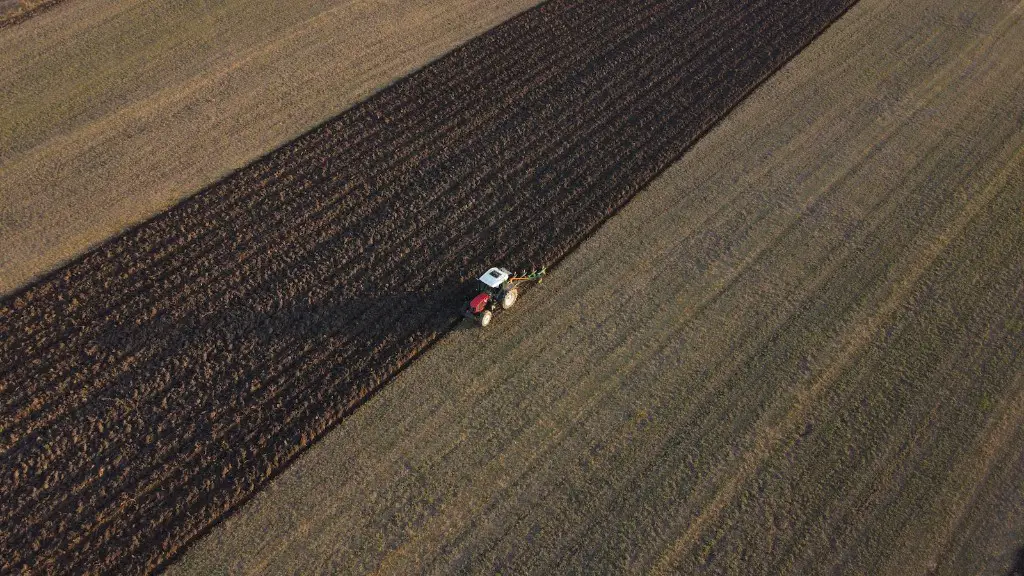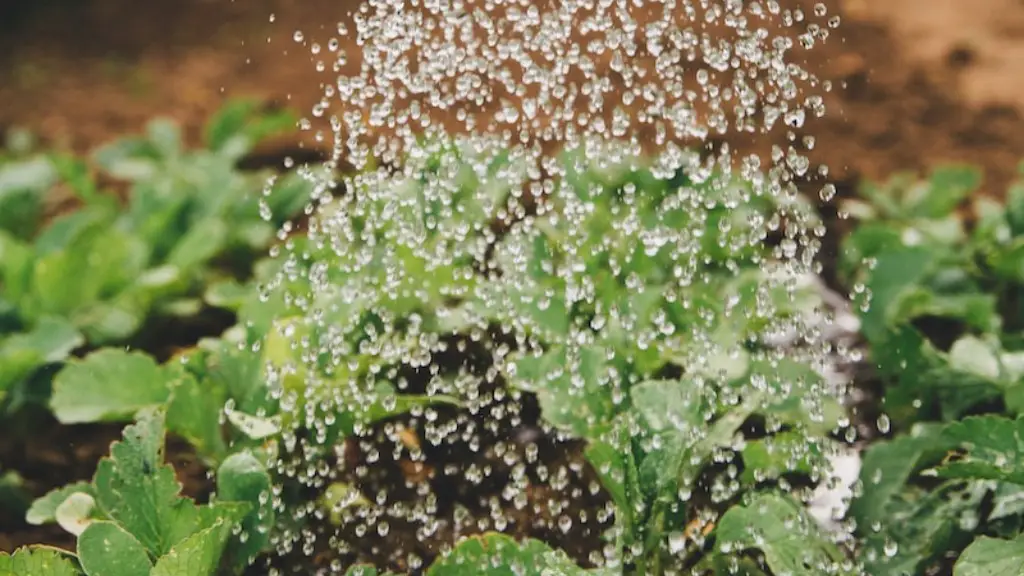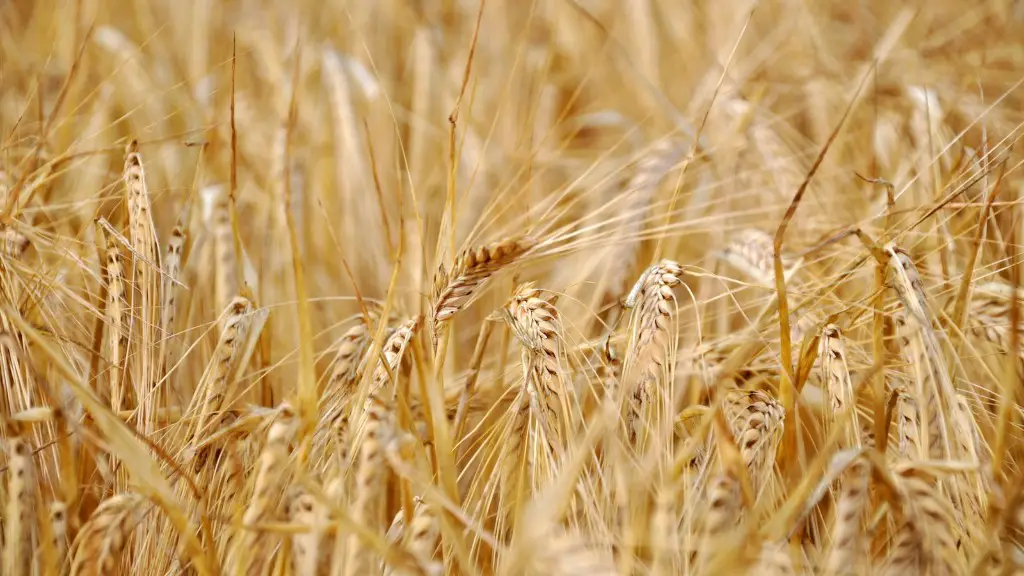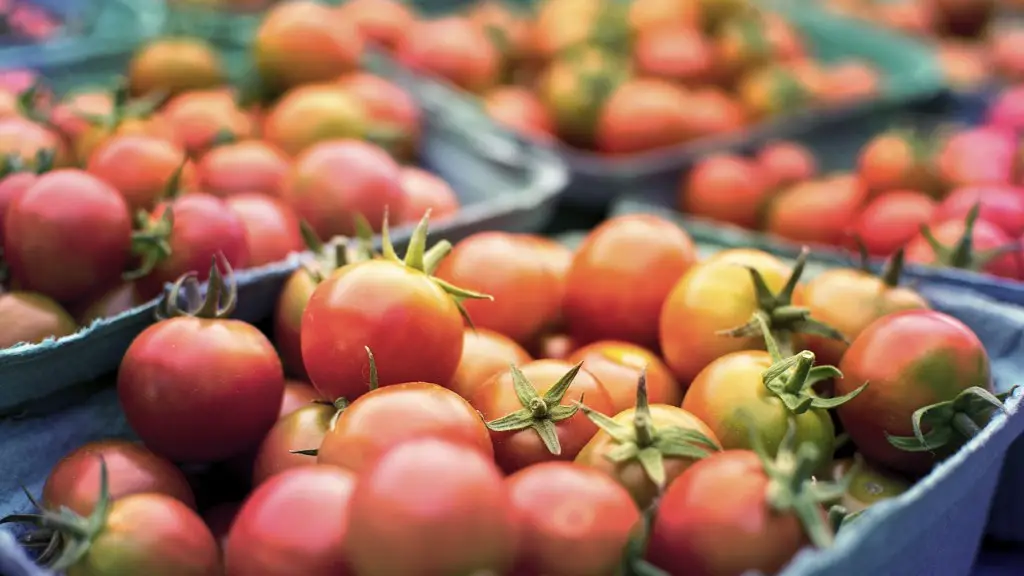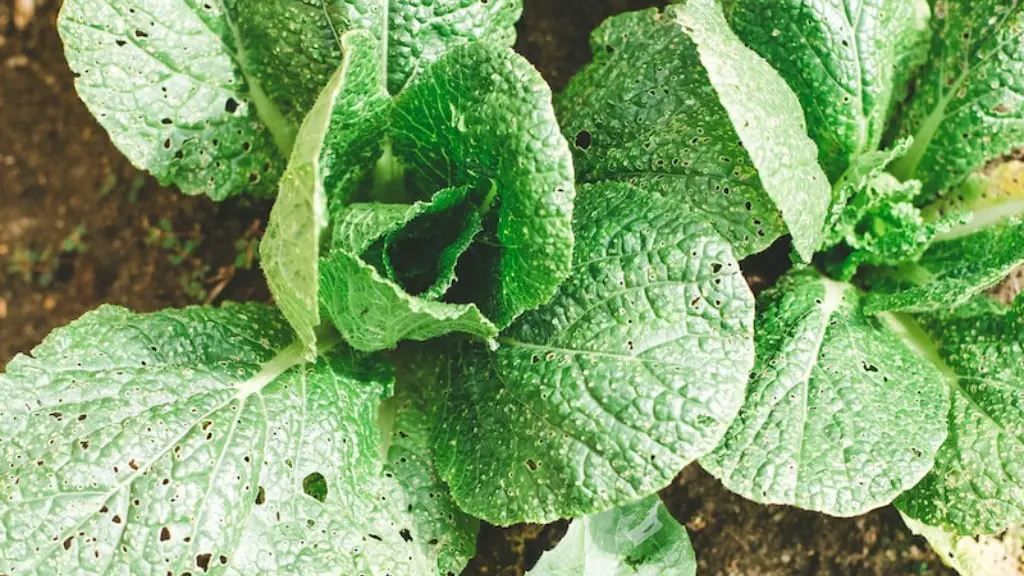Food safety is a top public health concern in the United States. Each year, millions of people get sick from consuming contaminated food. The repercussions of foodborne illness are far-reaching, affecting not only human health, but also the economy and agriculture.
Food safety is a complex issue that involves all aspects of the food system, from farm to fork. Agriculture plays a critical role in food safety by producing safe food products and by following food safety practices throughout the farm-to-fork continuum.
When it comes to food safety, agriculture has a vested interest in producing safe food products. Contaminated food can cause serious illness and even death, and it can damage the reputation of the agricultural industry. Agriculture also has an economic interest in producing safe food products. Foodborne illness can cost the agricultural industry billions of dollars each year in lost productivity, medical expenses, and litigation.
Despite these interests, agriculture faces many challenges in ensuring food safety. The complexity of the food system, the global nature of the food supply, and the ever-changing nature of foodborne pathogens make it difficult to keep food safe. In addition, the use of pesticides, antibiotics, and other chemicals in agriculture can pose risks to food safety.
Agricultural producers must implement
The United States food safety system is a complex network of federal, state, local, and private entities that work together to ensure the safety of the nation’s food supply. The system is designed to prevent foodborne illness, ensure food security, and protect the food supply from intentional adulteration.
Food safety is important for all members of the food supply chain, from farmers and food manufacturers to retailers and foodservice operators. Everyone has a role to play in ensuring that the food we eat is safe.
Farmers are responsible for growing safe food and ensuring that their animals are healthy. They also must follow food safety practices when handling and storing food.
Food manufacturers must follow good manufacturing practices to ensure the safety of their products. They must also develop and implement food safety plans that address hazards that could occur during production.
Retailers must maintain clean and safe stores, properly handle and store foods, and ensure that their customers are informed about food safety.
Foodservice operators must follow food safety practices when handling and preparing food. They must also ensure that their customers are aware of the potential risks associated with certain foods.
Why is food safety important in agriculture?
Food safety is a key issue for public health and the economy. Reducing foodborne illnesses can have a significant impact on both. In addition to the direct benefits of improved health and reduced health care costs, there are indirect benefits as well. Improved productivity and reduced loss of income are two of the most important.
Food safety is a complex issue, and there is no single solution. However, ongoing improvements in food safety practices can have a real and lasting impact.
There are many ways to ensure food safety, from proper storage and preparation techniques to choosing safe ingredients. It’s important to be aware of food safety risks and how to avoid them to ensure that the food you eat is safe and nutritious.
What is the relationship between agriculture and food
Agriculture is the process of producing food, fibre and other desired products by the cultivation of plants and animals.
It involves the use of natural resources such as land, water, air, sunlight and soil.
Agriculture also involves the management of these resources in order to produce the desired outputs.
The inputs into agriculture include seeds, fertilizers, pesticides, irrigation water and labour.
The outputs from agriculture include food, fibre, fuel and other products.
The main types of agriculture are subsistence agriculture, commercial agriculture and intensive agriculture.
Subsistence agriculture is the production of food for the farmer and their family.
Commercial agriculture is the production of food for the market.
Intensive agriculture is the production of food using high levels of inputs such as fertilizers, pesticides and irrigation water.
It is clear that food insecurity decreases with increasing land size, the diversity of food and cash crops as well as livestock, and the yield of rice and vanilla. All of these agricultural factors contribute to a more secure food supply, which is essential for avoiding hunger and malnutrition.
Why is it important to protect agriculture?
Protecting agricultural land is important for long-term food security and for providing essential environmental benefits. Agricultural land provides us with food, and it also helps to filter our water and air, and to stabilize our climate. By promoting agricultural viability, we can help to ensure that agricultural land is farmed and available for future food production.
Food safety is important because it helps protect consumers from the risk of foodborne illnesses. It also helps to prevent consumers from risks of health-related conditions such as allergy and even death.
What are some of the safety issues in agriculture?
Farmers and farm workers work with potentially dangerous machinery, vehicles, chemicals, livestock, at height or near pits and silos They are exposed to the effects of bad weather, noise and dust The risks also include family members working at the farm and children living at or visiting the farm. All of these factors make farming one of the most dangerous occupations in the world. Despite the inherent dangers, farmers and farm workers continue to do the job because it is their livelihood.
There are some things that can be done to improve safety on farms, such as better training and education for farm workers, better maintenance of equipment, and better safety protocols. However, the best way to improve safety on farms is to prevent accidents from happening in the first place.
Good Agricultural Practices (GAP) is a voluntary certification program which verifies through an audit that sound food safety practices are being used. This helps reduce the risk of microbial contamination in fruits, vegetables and nuts and aims to make sure these foods are safe for you to eat.
GAP certification is beneficial for farmers as it can lead to higher prices for their products and improved access to markets. For consumers, GAP certification provides assurance that the food they are eating is safe.
There are a number of food safety practices that farmers can implement to reduce the risk of contamination, such as:
-Growing crops in well-drained soil
-Using clean water for irrigation
-Keeping fields free of debris and weeds
– pruning trees and plants to prevent the spread of disease
– following proper hygiene when handling food
audits are conducted by third-party certification bodies to verify that farmers are following these practices. If you are buying fruits, vegetables or nuts that are marked as GAP certified, you can be confident that they have been grown using sound food safety practices.
Is food security part of agriculture
Agriculture plays a central role in safeguarding the region’s food supply and achieving the second UN Sustainable Development Goal of zero hunger by 2030 In addition, agriculture is absolutely central to achieving regional food security, and the promotion of sustainable agriculture.
The region’s agriculture sector is highly diversified, with a wide range of products being grown and produced. This diversity is a key strength of the sector, as it provides resilience against shocks and helps to ensure a constant supply of food.
In order to achieve the goal of zero hunger by 2030, it is essential that the region’s agriculture sector is supported and developed. This includes investing in infrastructure, promoting sustainable practices, and increasing access to markets.
After food production, the land is left barren and unsuitable for new growth. This is especially true of land used for industrial monoculture farms. Harvesting the crop represents a significant amount of nutrients, water, and energy being taken from the land, which leaves it unable to support new life.
How much does agriculture contribute to food?
The agricultural sector is a key driver of the US economy, contributing around $1264 trillion to GDP in 2021. The sector is also responsible for providing food and related products to American consumers and businesses. The agricultural industry employs a significant number of workers, with the US Department of Agriculture estimating that there are around 2.6 million jobs in the sector. The sector is also a major contributor to exports, with agriculture and food products accounting for around $172 billion in exports in 2019.
Agricultural production and AKST can have a profound impact on human health. They can affect a range of health issues including undernutrition, chronic diseases, infectious diseases, food safety, and environmental and occupational health.
For example, agricultural production can impact undernutrition by determining the type and quantity of food that is available. If there is insufficient or poor quality food available, this can lead to problems such as stunted growth, vitamin and mineral deficiencies, and even death.
Chronic diseases such as heart disease, stroke, and cancer can also be affected by agricultural production and AKST. This is because the food we eat can influence our risk of developing these diseases. For example, a diet high in saturated fats, salt, and sugar can increase our risk of developing cardiovascular disease, while a diet high in fruits and vegetables can help to protect against this.
Infectious diseases can also be affected by agricultural production and AKST. This is because the way animals are raised and the food they are fed can impact the spread of diseases. For example, if animals are raised in close quarters and fed an unhealthy diet, this can lead to the spread of diseases such as salmonella and E. coli.
Food safety can also be
What is the most important thing for agriculture
It is true that the use of modern machinery in agricultural lands has led to more and high-quality production of crops. This in turn has provided a boost to the industries as they now have a never-ending supply of raw materials.
The agriculture industry is responsible for the world’s food supply, making it one of the most important industries. Agriculture is responsible for everything from harvesting crops to raising livestock, ensuring that both vegetarians and carnivores have access to food. The industry is also responsible for the health and safety of the food supply, making sure that crops are free of pests and diseases and that livestock is raised humanely.
What is the impact of agriculture?
Agriculture has long been recognized as a significant contributor to environmental problems. The application of harmful chemicals, mechanization, and other unsustainable practices have led to a number of significant environmental issues, including climate change, deforestation, biodiversity loss, dead zones, genetic engineering, irrigation problems, pollutants, soil degradation, and waste. In recent years, there has been an increasing focus on organic and sustainable agriculture as a way to reduce the negative environmental impacts of traditional farming practices. However, organic agriculture is not without its own environmental problems. The use of organic fertilizers and pesticides can still lead to pollution and soil degradation, and the clearing of land for organic farms can cause deforestation.
According to the Centers for Disease Control and Prevention (CDC), about 1 in 6 people in the United States gets sick from eating contaminated foods each year. Foodborne diseases cause 48 million illnesses annually in the US, leading to hospitalization for 128,000 people and 3,000 deaths. contaminated foods can cause a variety of illnesses, ranging from mild to severe. The symptoms may include vomiting, diarrhea, abdominal cramps, and fever. In some cases, foodborne illnesses can lead to long-term health problems, or even death.
Final Words
The Agricultural Marketing Service (AMS) defines food safety as “a scientific discipline describing the handling, preparation, and storage of food in ways that prevent food-borne illness.” Food safety is important to agriculture because it includes all activities related to producing safe food, from farming and harvesting to transportation, storage, and processing. Ensuring food safety is a shared responsibility among everyone in the food chain, from farmers to food manufacturers to retailers to consumers.
Food safety is a major concern in agriculture. Farmers must take precautions to ensure that their crops are free of harmful pesticides and fertilizers. They must also carefully clean and cook their food to avoid contamination. These measures help to protect consumers from food-borne illnesses.
